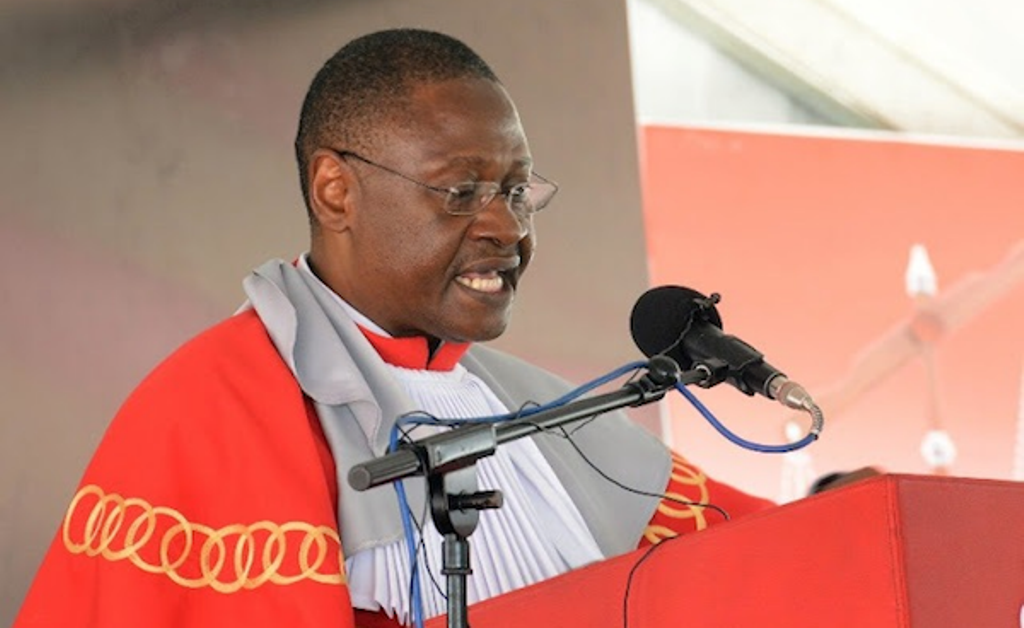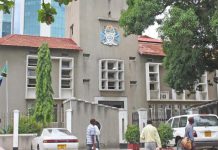Author: FAUSTIN KAPAMA
AfricaPress-Tanzania: THE Chief Justice (CJ), Prof Ibrahim Juma, has warned judicial officers, in particular magistrates, for entertaining the prosecution’s excuses for incomplete investigations and endless adjournments in serious offences such as murder, terrorism, money laundering and other economic crime offences.
Prof Juma issuing such warning at a ceremony to swear in 40 new resident magistrates at the High Court building in Dar es Salaam on Friday.
“There are unjustified delays in these cases,” he pointed out.
The CJ added: “Magistrates are making mistakes in these cases by allowing endless adjournments without being given good reasons because incomplete investigation is not a cogent reason. We should not accept such banal reasons. We must be told what is hindering investigation.”
He said that higher courts could not interfere with the magistrates’ freedom, but the latter were abusing their independence by not acting on adjournments to facilitate the dispensation of justice.
“Citizens tell us that prosecutors use delays as punishment and that they are punished before they are even convicted,” said Prof Juma.
According to him, to seal legal loopholes used by prosecutors and investigators that lead to unlimited adjournments, the Principal Judge issued a Circular No 5 of 2019 directed to judges and magistrates in charge on expediting committal proceedings, plea taking and preliminary hearing of such cases.
The Principal Judge directed resident magistrates in charge of committing courts to ensure committal proceedings are conducted and finalised in two weeks from the date of receiving information and its annexures from Deputy Registrars in respect of High Court zones.
He wanted them to ensure committal proceeding records were typed, compiled and served to parties in terms of Section 249 of the Criminal Procedure Act (CPA) followed by remittances of court records to the High Court in two weeks, unless extension was applied for and granted by the judge in-charge.
This means, according to the circular issued by the Principal Judge, Dr Eliezer Feleshi, committing courts should conduct and finally remit the committal proceeding records to the High Court in 30 days.
He also directed the resident magistrates in charge to ensure case files were assigned to judges or magistrates with extended jurisdiction in two weeks after their remittance to the High Court Registry for purposes of allowing adequate preparations by parties to cases.
Other directives include ensuring plea and preliminary hearing are taken and conducted in two weeks from the date of assignment of the case files to ensure that Deputy Registrars at all times maintain adequate and effective communication with stakeholders.
In his address to the new magistrates, the CJ also pointed out that delays in capital offence cases were not caused by legal shortcomings, but the weakness of judges, registrars and magistrates.
“We do not hold prosecutors accountable. You fear them so much, I don’t know why. A competent and moral magistrate has no reason to fear a prosecutor. Exercise your powers for the benefits of citizens whose criminal cases are adjourned endlessly,” the head of the judiciary said.
Prof Juma explained that there were many decisions of the Court of Appeal prohibiting case delays, something which was becoming an accepted practice and many magistrates kept adjourning cases instead of hearing them.
He referred to the case of Ibrahim Msabaha v Lutter Nelson and others, Civil Appeal No 4 of 1997, by Chief Justice Francis Nyalali, as he then was. In that case, the court held, “We think that the approach of this court which seeks to discourage adjournments of cases on flimsy or no grounds at all should be followed by all courts in this country…not only because delays amount to a denial of justice, but also because they are common knowledge that there is widespread outcry by the people of this country against unnecessary and rampant adjournments of cases by courts.”
“We emphasise the point that the discretion of a court to adjourn a case which is scheduled for hearing must always be exercised judicially, that is, for good cause which must be recorded.”
Prof Juma revealed that there were some measures the judiciary had taken to ensure the circular issued by the Principal Judge was implemented.
“One of the measures,” he said, “include the Information and Communication Technology Unit to set up an electronic tracking system for all major criminal cases that are stalled before at the magistrates’ level and knowing which of them has failed to exercise his authority as per the Principal Judge Notice.”
“We will take all magistrates who violate the flow of the time fixed by the Principal Judge before the Ethics Committee on allegations of being incompetent to perform their functions as magistrates for the Judicial Service Commission to give its decision later,” the CJ warned.
He, thus, reminded the new magistrates that the delays in cases and endless adjournments without good reason were violations of rights and were not part of the judiciary culture governed by the principles of the Constitution and the law.







